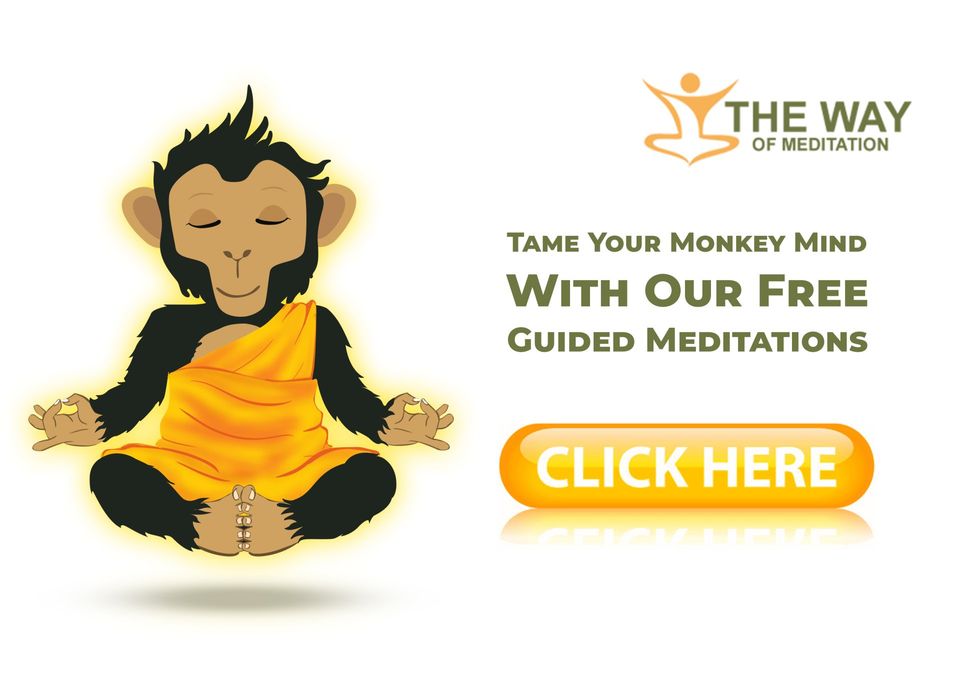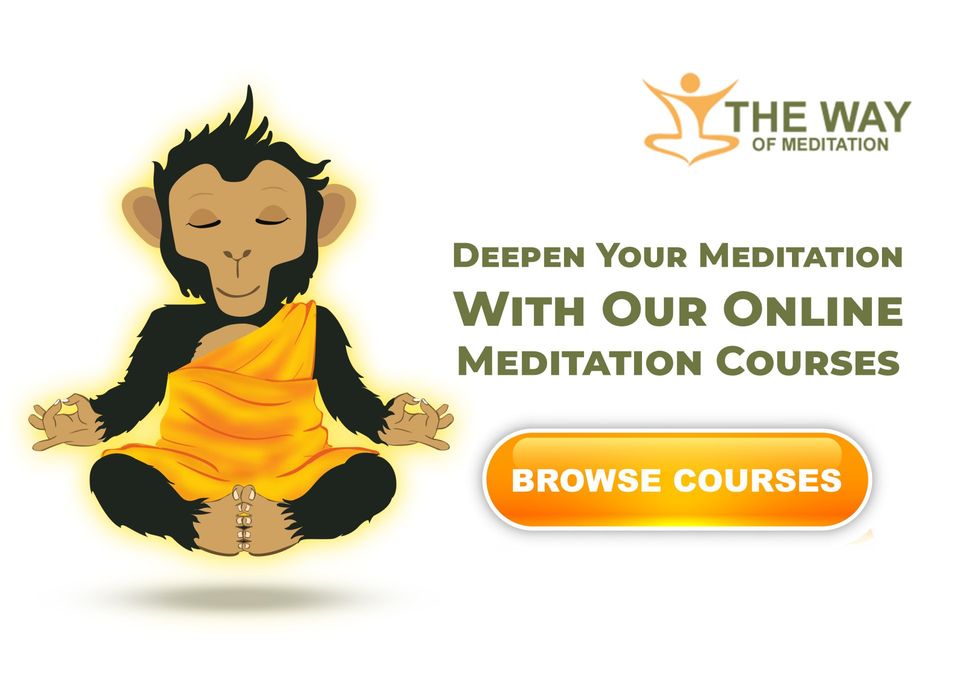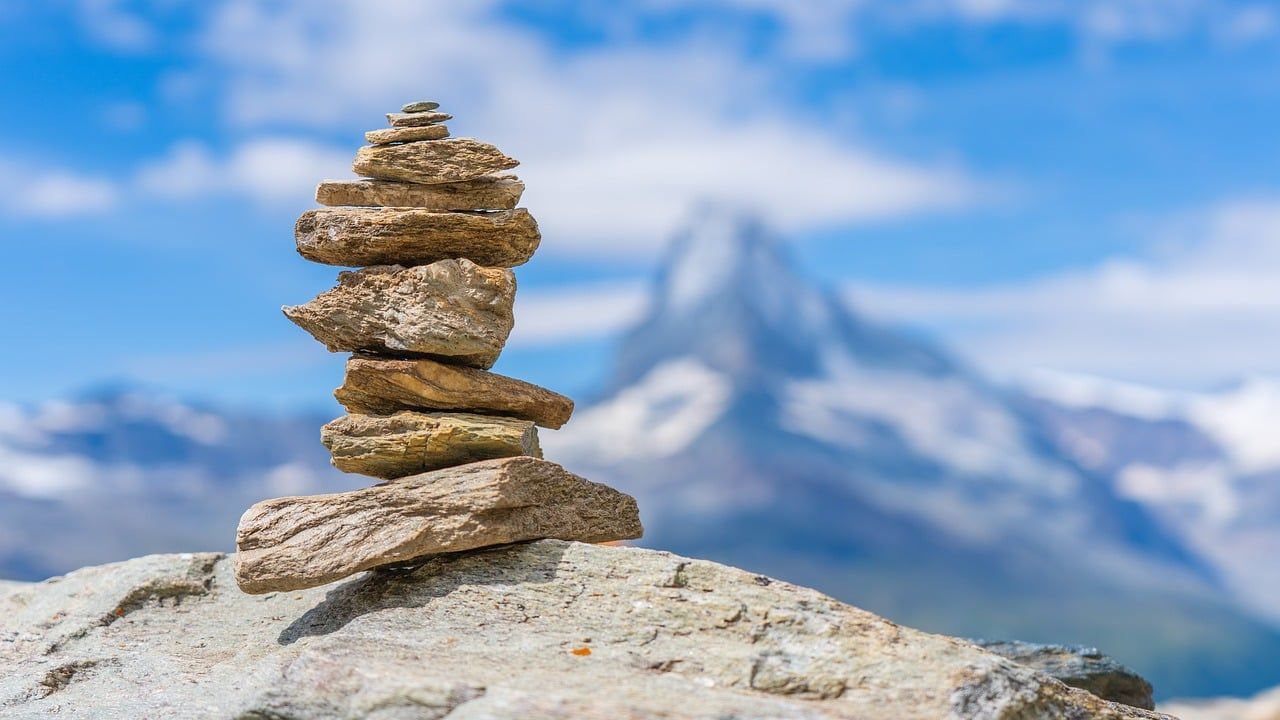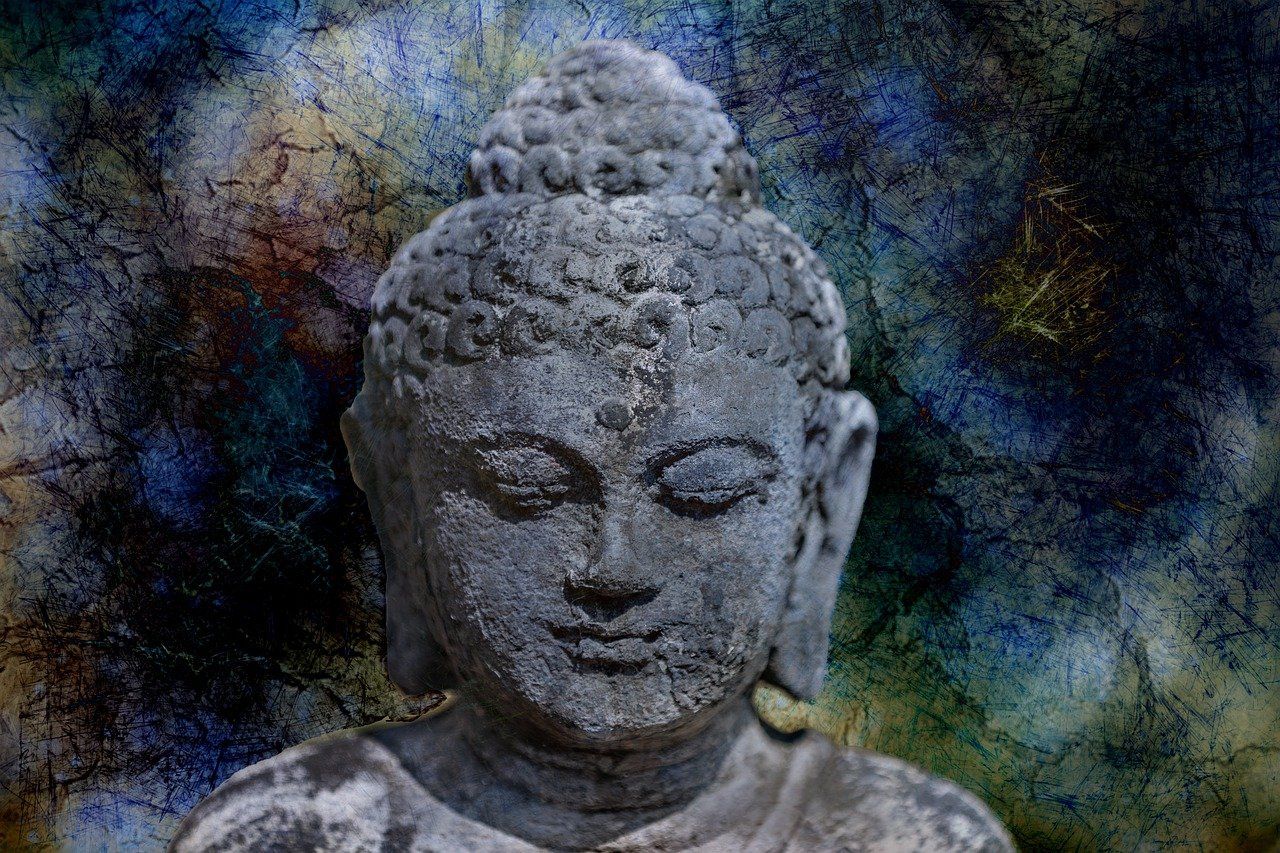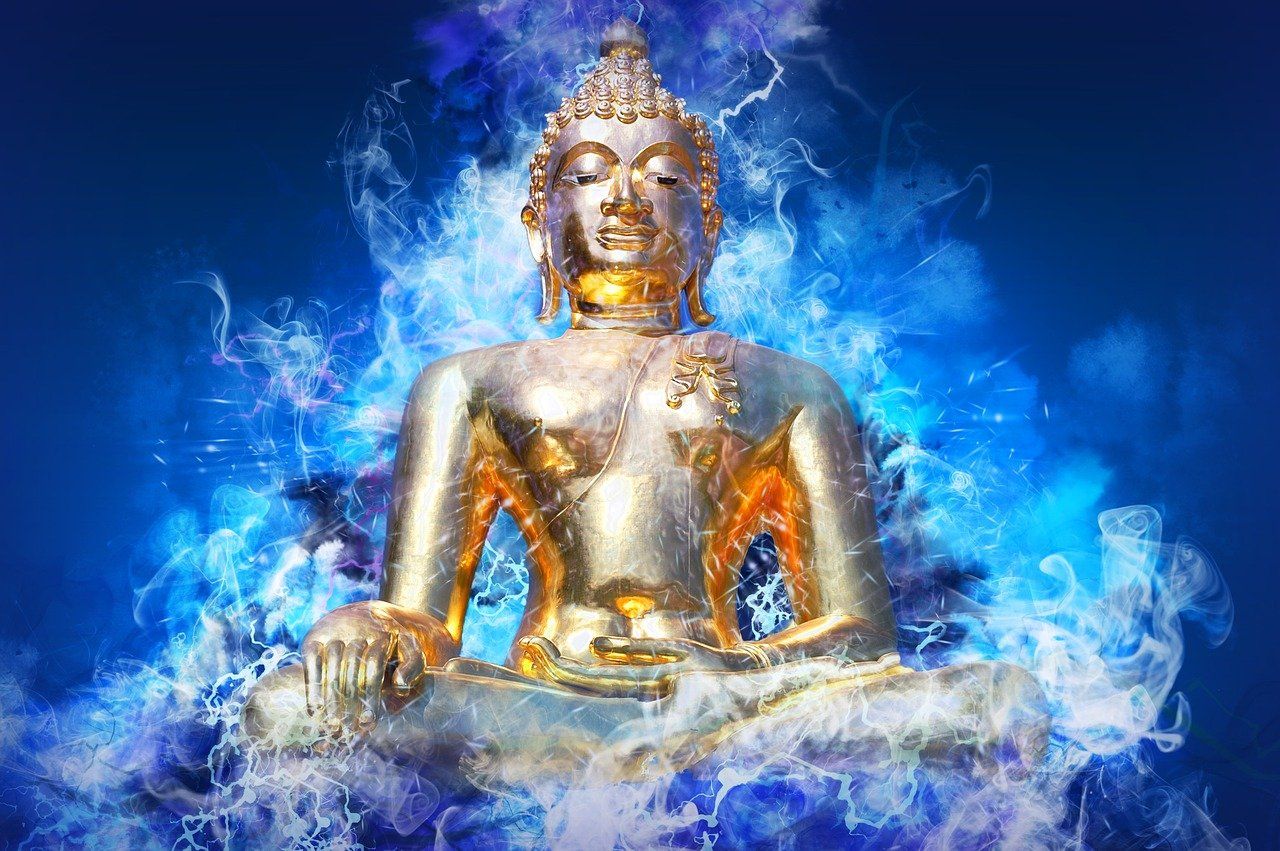The Way of Meditation Blog
Bringing Ancient Wisdom Into The Modern World
What I Learned From 20 Years Of Mindfulness Meditation
Giovanni Dienstmann • May 19, 2019
Mindfulness Meditation
What can meditation / mindfulness do for you? What is all the fuss about? Here is a personal account of my experience with mindfulness meditation, and what I’ve learned along the way.
For me it all started nearly 20 years ago, when a friend of mine invited me to go to a two-hour workshop on meditation. There was some explanation of what it is, and why it is valuable. I was then told to close my eyes and “connect to my inner Self”. I had no idea what that meant, but I just decided to follow the instruction without questioning. Some calming music was playing in the background, and there were around 30 people seated in that room.
In those few minutes, I felt such a feeling of calmness in my mind, and complete relaxation in my body like I had never felt before. I was a very agitated and hyperactive child and teenager, so that was a novel (and precious) experience for me. There was also a subtle feeling of satisfaction, of ease. I was hooked. That night I decided that I would start meditating regularly.
For me it all started nearly 20 years ago, when a friend of mine invited me to go to a two-hour workshop on meditation. There was some explanation of what it is, and why it is valuable. I was then told to close my eyes and “connect to my inner Self”. I had no idea what that meant, but I just decided to follow the instruction without questioning. Some calming music was playing in the background, and there were around 30 people seated in that room.
In those few minutes, I felt such a feeling of calmness in my mind, and complete relaxation in my body like I had never felt before. I was a very agitated and hyperactive child and teenager, so that was a novel (and precious) experience for me. There was also a subtle feeling of satisfaction, of ease. I was hooked. That night I decided that I would start meditating regularly.
And so I did. I started meditating for 20 minuntes every night (nowadays I do one hour). Even though I had no idea what I was doing, I just kept at it. Over the years my practice evolved, as I tried different techniques and met masters in India, Brazil, France, Japan and Australia.
As a result of all these thousands of hours of practice, and tens of books read on related subjects, there was deep transformation on several aspects of my life. I’ve also learned some things about myself and about what works with meditation, and I’m excited to share these with you.
“You should sit in meditation for twenty minutes every day; unless you are too busy, then you should sit for an hour” — Zen Saying
1. Different things for different people
Meditation is the mental exercise of focusing all your attention, moment after moment, on the object of meditation. This can be your breath, an affirmation, visualization, mantra, anything. During the session, the effort is to keep bringing the attention back whenever it wanders, and to disengage it from being busy with other things.
“Mindfulness” is the practice of being aware in the present moment, a space of noticing the state of things (internal or external) without judgment. It can be said to be a type of meditation, or a way to integrate meditation in daily life activities.
People do meditation for different purposes. Centuries ago, people would only do it for spiritual purposes: to discover themselves, master their mind, or connect to something higher.
With meditation becoming known in the West, early adopters started seeing that the mental and emotional benefits that come from the practice are useful in basically any area of life — from career and personal development to athletic performance, health care, family relationships, and business.
It is usually one of these three things that drive people to start:
Specific Benefit: improving your health, wellness, performance, focus, memory, creativity, etc.
Growth: personal growth, emotional healing, therapy
Spirituality: connecting with God, transcending the ego, etc.
Whatever drives you to meditate, that is good. You will get the benefits you seek, in the proportion of your consistency and commitment to building this habit. But the wider you cast your net, the more fish you will get — so I would encourage you to practice not only for one particular reason, but for the sake of the practice itself.
Everyday you need to eat, take shower, and sleep. Practice meditation like this, and you are more likely to stick to it, and the benefits will be deeper in your life.
2. Three essential virtues
Keep these three attitudes in mind, and your mindfulness meditation practice will be solid: consistency, interest, openness.
(a) Stubborn consistency.
Have a “never zero” approach. No matter what, do your practice every day. Even if for only five minutes. Even one minute (if you are starting). But do it.
It doesn’t matter if you are tired, bored, busy, confused, depressed, or angry. Just sit. This will wire meditation deep into your brain.
(b) Keep hungry, keep interested.
Keep your interest alive. Read about it, talk about it, meet with people who meditate, go to retreats. It will keep your enthusiasm alive.
(c) Have a Zen-like openness
You need to develop a different mindset to be a “successful meditator”. It’s not about results. It’s about the process itself. Funny enough, you get more results, more benefits, when you forget about them.
Be patient. Don’t harbor expectations with your practice. Don’t close down on any goal.
So, the perfect attitude would be: meditate every day with zest, but no expectations.
But you will not have the perfect attitude. Neither did I. That is ok too. Just keep it in mind.
As a result of all these thousands of hours of practice, and tens of books read on related subjects, there was deep transformation on several aspects of my life. I’ve also learned some things about myself and about what works with meditation, and I’m excited to share these with you.
“You should sit in meditation for twenty minutes every day; unless you are too busy, then you should sit for an hour” — Zen Saying
5 Valuable Lessons I Learned
Meditation is the mental exercise of focusing all your attention, moment after moment, on the object of meditation. This can be your breath, an affirmation, visualization, mantra, anything. During the session, the effort is to keep bringing the attention back whenever it wanders, and to disengage it from being busy with other things.
“Mindfulness” is the practice of being aware in the present moment, a space of noticing the state of things (internal or external) without judgment. It can be said to be a type of meditation, or a way to integrate meditation in daily life activities.
People do meditation for different purposes. Centuries ago, people would only do it for spiritual purposes: to discover themselves, master their mind, or connect to something higher.
With meditation becoming known in the West, early adopters started seeing that the mental and emotional benefits that come from the practice are useful in basically any area of life — from career and personal development to athletic performance, health care, family relationships, and business.
It is usually one of these three things that drive people to start:
Specific Benefit: improving your health, wellness, performance, focus, memory, creativity, etc.
Growth: personal growth, emotional healing, therapy
Spirituality: connecting with God, transcending the ego, etc.
Whatever drives you to meditate, that is good. You will get the benefits you seek, in the proportion of your consistency and commitment to building this habit. But the wider you cast your net, the more fish you will get — so I would encourage you to practice not only for one particular reason, but for the sake of the practice itself.
Everyday you need to eat, take shower, and sleep. Practice meditation like this, and you are more likely to stick to it, and the benefits will be deeper in your life.
2. Three essential virtues
Keep these three attitudes in mind, and your mindfulness meditation practice will be solid: consistency, interest, openness.
(a) Stubborn consistency.
Have a “never zero” approach. No matter what, do your practice every day. Even if for only five minutes. Even one minute (if you are starting). But do it.
It doesn’t matter if you are tired, bored, busy, confused, depressed, or angry. Just sit. This will wire meditation deep into your brain.
(b) Keep hungry, keep interested.
Keep your interest alive. Read about it, talk about it, meet with people who meditate, go to retreats. It will keep your enthusiasm alive.
(c) Have a Zen-like openness
You need to develop a different mindset to be a “successful meditator”. It’s not about results. It’s about the process itself. Funny enough, you get more results, more benefits, when you forget about them.
Be patient. Don’t harbor expectations with your practice. Don’t close down on any goal.
So, the perfect attitude would be: meditate every day with zest, but no expectations.
But you will not have the perfect attitude. Neither did I. That is ok too. Just keep it in mind.
3. Moving Buddha, Living Buddha
If I want to be fluent in a foreign language, just studying it a little bit every day will only take me so far. Fluency comes when I start to constantly think about what I’ve learned, and experiment thinking in that language, during my day.
The same goes with meditation — it has to become larger than your few minutes a day sitting on a cushion. That is the whole point of it, isn’t it?
How to do that? By reminding ourselves, several times a day, of the “quiet space”, the calmness of mind that we experience while in meditation. When you are talking, eating, working, anything. Just take a deep breath, become mindful of your body and state of mind, and bring back the attention to that space. This is mindfulness in action.
Another experiment that worked well for me is to bring my strongest emotions inside meditation. For a while I used to take any strong emotion that would come as an opportunity to meditate, go deep into it, and find out what it is. I can’t recommend this practice for everybody, but for me it was deeply liberating. I did it with fear, and with sadness. And I can say these things have never again had the same power over me. These negative emotions, if they come up in me, is now more like a bucket of salt thrown in a lake — not a bucket of salt thrown in a small pound. It doesn’t really get salty, you know.
So make sure to couple your “formal practice” with a few 30 seconds moments of meditation during your day. That is the most important element in integrating mindfulness in your life. And bring your state of mindfulness to your strongest emotions. A powerful liberation can occur.
4. Things will change
Your view on things will change. Your self-identity may change as well.
But don’t panic. I’m not saying you will become a monk disconnected from the world, nor in a hippie blissed-out state. You will see how many things you believed in are actually not true, and your mind will become more flexible.
I cannot really say what the changes will be. That depends on you, it’s subjective. In the next point I’ll explore one of the major shifts that meditation brought for me.
5. I’m not my mind
One of the greatest gifts meditation has given me is the understanding that I’m not my mind, and a space of detachment from whatever is happening, inside or out.
I now deeply know that whatever I’m thinking or feeling is just another temporary movement inside my consciousness. Be it a worry, or fear, or stress, or limiting belief, whatever. It appeared at a certain time, stays in for a while, and then disappears. If there is no attachment to it — and I have learned that I don’t need to be attached, that it is a choice — it will just pass. And, even during the time that the feeling is happening, it does not make me a hostage anymore.
Just like I observe my breathing going in and out during meditation, I observe the mind getting irritated, the body warming up, and the impulse for action rising. And I know that I always have a choice. A choice to act based on it, to make use of it, or to simply let it go. This is the power and freedom that meditation keeps giving me.
If I want to be fluent in a foreign language, just studying it a little bit every day will only take me so far. Fluency comes when I start to constantly think about what I’ve learned, and experiment thinking in that language, during my day.
The same goes with meditation — it has to become larger than your few minutes a day sitting on a cushion. That is the whole point of it, isn’t it?
How to do that? By reminding ourselves, several times a day, of the “quiet space”, the calmness of mind that we experience while in meditation. When you are talking, eating, working, anything. Just take a deep breath, become mindful of your body and state of mind, and bring back the attention to that space. This is mindfulness in action.
Another experiment that worked well for me is to bring my strongest emotions inside meditation. For a while I used to take any strong emotion that would come as an opportunity to meditate, go deep into it, and find out what it is. I can’t recommend this practice for everybody, but for me it was deeply liberating. I did it with fear, and with sadness. And I can say these things have never again had the same power over me. These negative emotions, if they come up in me, is now more like a bucket of salt thrown in a lake — not a bucket of salt thrown in a small pound. It doesn’t really get salty, you know.
So make sure to couple your “formal practice” with a few 30 seconds moments of meditation during your day. That is the most important element in integrating mindfulness in your life. And bring your state of mindfulness to your strongest emotions. A powerful liberation can occur.
4. Things will change
Your view on things will change. Your self-identity may change as well.
But don’t panic. I’m not saying you will become a monk disconnected from the world, nor in a hippie blissed-out state. You will see how many things you believed in are actually not true, and your mind will become more flexible.
I cannot really say what the changes will be. That depends on you, it’s subjective. In the next point I’ll explore one of the major shifts that meditation brought for me.
5. I’m not my mind
One of the greatest gifts meditation has given me is the understanding that I’m not my mind, and a space of detachment from whatever is happening, inside or out.
I now deeply know that whatever I’m thinking or feeling is just another temporary movement inside my consciousness. Be it a worry, or fear, or stress, or limiting belief, whatever. It appeared at a certain time, stays in for a while, and then disappears. If there is no attachment to it — and I have learned that I don’t need to be attached, that it is a choice — it will just pass. And, even during the time that the feeling is happening, it does not make me a hostage anymore.
Just like I observe my breathing going in and out during meditation, I observe the mind getting irritated, the body warming up, and the impulse for action rising. And I know that I always have a choice. A choice to act based on it, to make use of it, or to simply let it go. This is the power and freedom that meditation keeps giving me.
Get A FREE
Guided Meditation Series
with Chad Foreman

In today’s fast-paced world, the mind often races, driven by the demands of work, family, and personal ambitions. Meditation is commonly seen as a practice to calm the mind, foster inner peace, and connect with deeper aspects of existence. Yet, one crucial element often overlooked is the state of the body, particularly the nervous system. Relaxing the nervous system isn’t just a preparatory step; it is foundational for unlocking the deeper states of awareness and tranquility that meditation promises. Drawing insights from my journey and teachings, we will explore why this is so vital and how it transforms the meditative experience.




